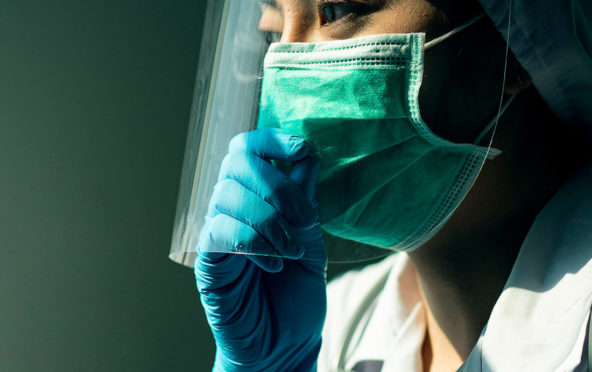
UK scientists and artists have teamed up with Syrian refugees to design and produce resuable masks, shields and gowns to help keep Covid-19 under control in Jordan.
The project, called The People’s PPE, has received £766,675 of funding from the UK Government, and aims to help refugees living in Zaatari camp by creating small-scale manufacturing jobs and making them more self-reliant in tackling the Covid-19 pandemic.
Academics at the University of Sheffield, London College of Fashion and University of the Arts London (UAL) collaborated with researchers from Al Albayt University and the University of Petra to develop the personal protective equipment (PPE).
Organised by the United Nations High Commissioner for Refugees (UNHCR), the Zaatari camp now has the facility to produce some of the PPE made from locally available, low-cost materials that can be recycled.
Moh’d Al Taher, associate external relations officer at UNHCR, said: “The cooperation with the University of Sheffield and London College of Fashion, UAL, has resulted in training many Syrian refugee women in the Zaatari camp with skills in developing PPE.
“These skills created livelihood opportunities for refugees and supported the refugee community.
“UNHCR plans to cover the needs of the camp community with PPE by using high-quality and low-cost materials; innovative solutions could only achieve this.”
The University of Sheffield’s collaborative workspace, called iForge, was used to design and manufacture laser-cut and 3D-printed face shields.
Professor Tony Ryan, director of the Grantham Centre for Sustainable Futures at the University of Sheffield and principle investigator on the project, said: “This project is about empowering refugees in a moment of health crisis.
“I’ve spent years working with the people of Zaatari and learning from their incredible resourcefulness and creativity.
“Faced with a global pandemic, we are working together to design and produce the protective equipment the refugees and their host community need to stay safe, while reducing plastic waste, creating jobs and building resilience within the camp community.”

Enjoy the convenience of having The Sunday Post delivered as a digital ePaper straight to your smartphone, tablet or computer.
Subscribe for only £5.49 a month and enjoy all the benefits of the printed paper as a digital replica.
Subscribe